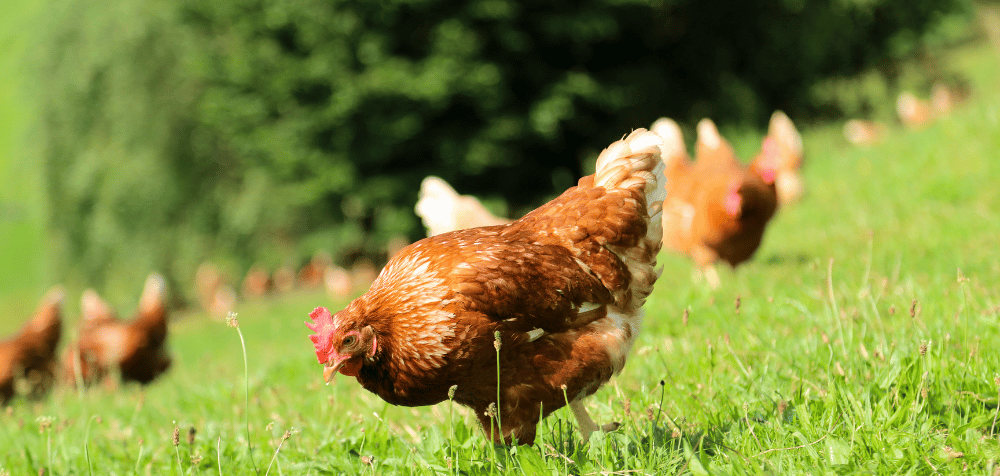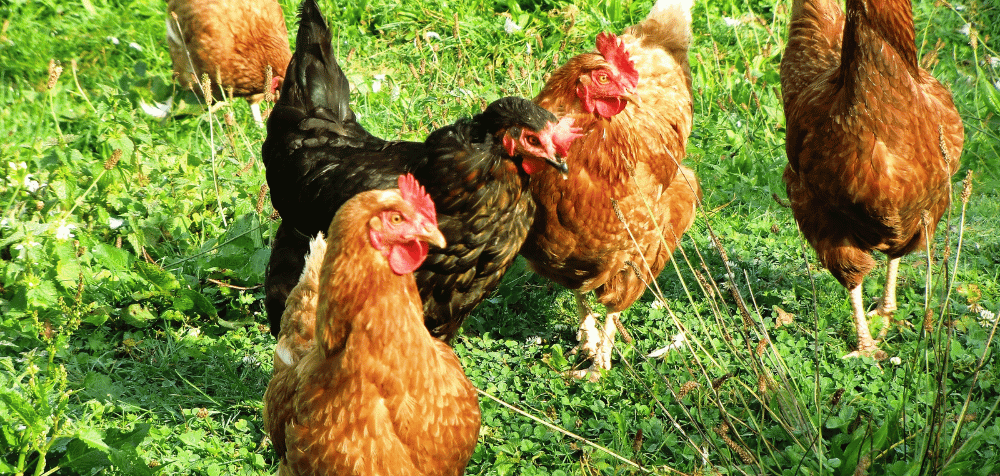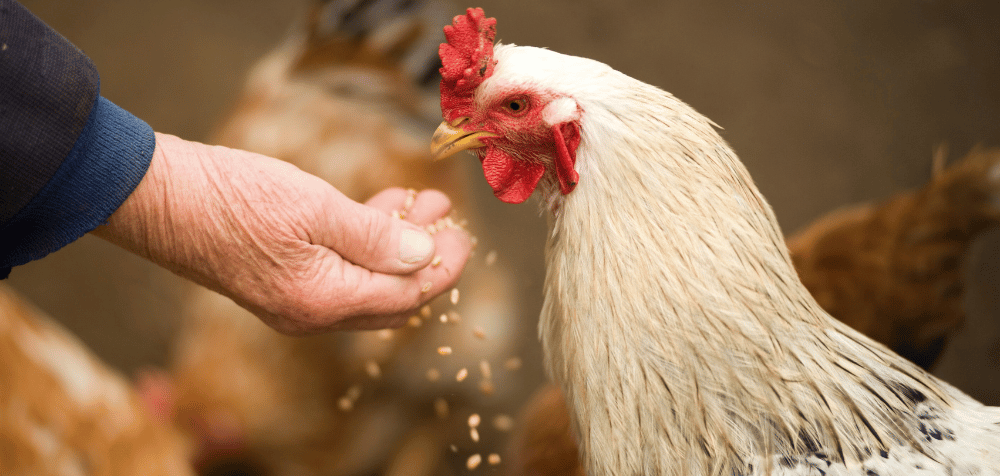Raising healthy chickens can be an incredibly rewarding experience, whether you’re a beginner or an experienced farmer. Not only do chickens provide fresh eggs, but they can also be excellent companions with unique personalities. However, keeping them in top shape requires some attention to detail.
In this guide, we’ll go over the top 10 tips for raising healthy chickens, so you can ensure your flock thrives.
1. Choose the Right Breed for Your Needs
When it comes to raising healthy chickens, the first step is choosing the right breed. Some chickens are better suited for egg production, while others are prized for their meat. Additionally, some breeds handle cold weather better, while others are ideal for warmer climates.
- Egg Layers: Breeds like Leghorns and Rhode Island Reds are great for producing a lot of eggs.
- Meat Birds: Cornish Crosses are commonly raised for meat.
- Dual Purpose: If you want both eggs and meat, breeds like Plymouth Rocks or Sussex may be ideal.
By choosing the right breed, you’ll set yourself up for success when it comes to raising healthy chickens that meet your needs.
2. Provide a Clean and Safe Environment

One of the most crucial aspects of raising healthy chickens is providing a clean and safe environment. Chickens are prone to various diseases and infections, many of which stem from dirty coops or unsafe surroundings.
- Regularly clean the coop: Remove old bedding, droppings, and spilled food to prevent the buildup of harmful bacteria.
- Ensure proper ventilation: Good airflow helps reduce moisture levels and the risk of respiratory issues.
- Protect against predators: Ensure your chickens are safe from predators by using secure latches and fencing.
A clean coop will not only make your chickens happier, but it will also reduce the risk of disease.
3. Provide High-Quality Feed
The feed you provide plays a massive role in raising healthy chickens. Whether you’re raising chickens for eggs, meat, or companionship, they need a balanced diet that provides all the essential nutrients.
- Starter feed: For chicks, use starter feed with around 20% protein.
- Layer feed: Once your chickens begin laying eggs, switch to a layer feed that contains about 16% protein and extra calcium for strong eggshells.
- Treats in moderation: While it’s tempting to spoil your chickens with treats like table scraps or mealworms, keep them limited to avoid throwing off their nutritional balance.
Ensuring your flock has access to fresh, high-quality feed will go a long way in keeping them healthy and productive.
4. Always Have Fresh Water Available
Hydration is key to raising healthy chickens. Chickens need access to clean, fresh water at all times. Dehydration can lead to serious health issues, including decreased egg production, heat stroke, and digestive problems.
- Check waterers daily: Make sure waterers are filled with fresh water and aren’t dirty or clogged.
- Change water often in hot weather: Chickens drink more in warm weather, so be sure to refresh their water frequently during hotter months.
A simple routine of providing fresh water can have a significant impact on your chickens’ overall well-being.
5. Give Your Chickens Space to Roam

Chickens love to forage and scratch around, and giving them space to do so is critical when raising healthy chickens. Free-ranging allows them to get exercise, fresh air, and access to bugs and plants that contribute to a more balanced diet.
- Free-ranging: If possible, let your chickens roam in a safe, enclosed area where they can forage.
- Run space: If free-ranging isn’t an option, ensure the run attached to their coop is large enough for all chickens to move around comfortably.
Chickens that have room to roam are less stressed, healthier, and generally more content.
6. Monitor for Health Issues
Regularly checking your flock for any signs of illness or injury is crucial to raising healthy chickens. Chickens can hide illnesses, so it’s important to stay vigilant.
- Common health checks: Look for signs of mites, lice, respiratory issues, or abnormal droppings.
- Isolate sick birds: If one of your chickens shows signs of illness, it’s a good idea to isolate it from the rest of the flock to prevent the spread of disease.
Proactive health monitoring will help you catch issues early, leading to quicker recovery and better overall flock health.
7. Provide Grit and Calcium Supplements

When raising healthy chickens, don’t forget to provide grit and calcium. Both are essential for their digestion and for maintaining strong eggshells.
- Grit: Chickens need grit (small stones) to help them digest their food, especially if they are free-ranging and consuming whole grains.
- Calcium: Laying hens need extra calcium, which can be provided through crushed oyster shells or specialized supplements.
Supplements like these are simple additions that make a big difference in keeping your flock strong and healthy.
8. Protect Your Flock from Extreme Weather
Weather conditions can have a significant impact on the health of your chickens. Whether it’s sweltering heat or freezing cold, raising healthy chickens means being prepared for extreme weather.
- Heat: Ensure your chickens have plenty of shade and cool water during hot months to prevent heatstroke.
- Cold: In winter, provide extra bedding and ensure their coop is well-insulated to keep them warm.
Keeping your chickens comfortable in all weather conditions will reduce stress and improve their overall health.
9. Practice Biosecurity
To keep your chickens healthy, it’s important to practice biosecurity, which involves measures to prevent disease from entering your flock.
- Limit visitors: Minimize the number of people who come into contact with your chickens, especially if they also have their own flock.
- Sanitize equipment: Regularly clean and disinfect any tools, feeders, or waterers that your chickens use.
- Quarantine new birds: If you’re introducing new chickens to your flock, keep them in quarantine for at least two weeks to ensure they aren’t carrying any diseases.
By taking these precautions, you’ll be reducing the risk of introducing pathogens that could harm your flock.
10. Keep a Consistent Routine
Chickens thrive on routine, and consistency is key when it comes to raising healthy chickens. A regular schedule for feeding, watering, and coop cleaning helps reduce stress and keeps chickens in good physical and mental health.
- Feed at the same times each day: Chickens appreciate knowing when to expect their meals.
- Let them out at a consistent time: If your chickens free-range, try to let them out and bring them in at the same time each day.
Establishing a solid routine will ensure that your chickens are well cared for and happy.
Summary
Raising healthy chickens doesn’t have to be difficult, but it does require attention to detail and a little bit of planning.
From choosing the right breed to maintaining a clean coop, each of these tips can help you raise a thriving flock that will reward you with delicious eggs and lively companionship.

